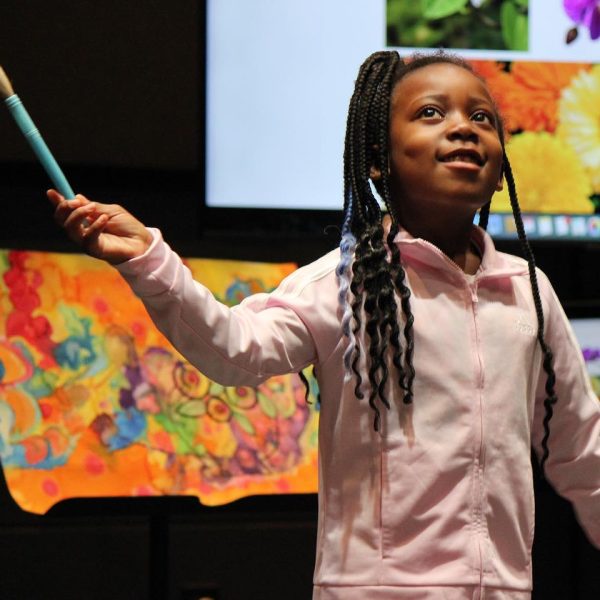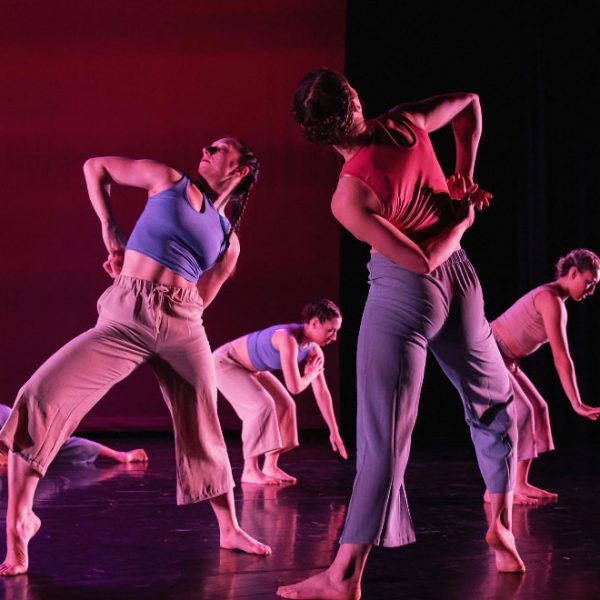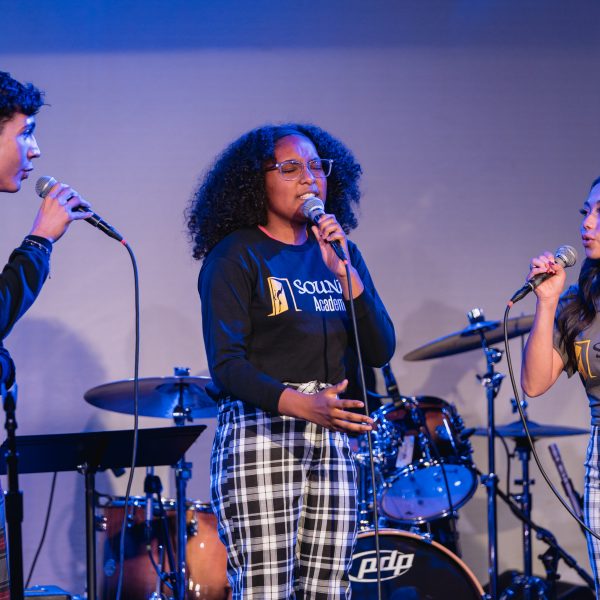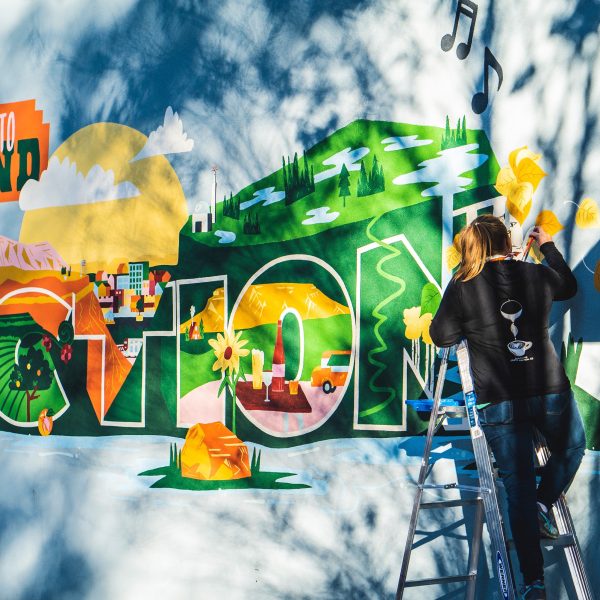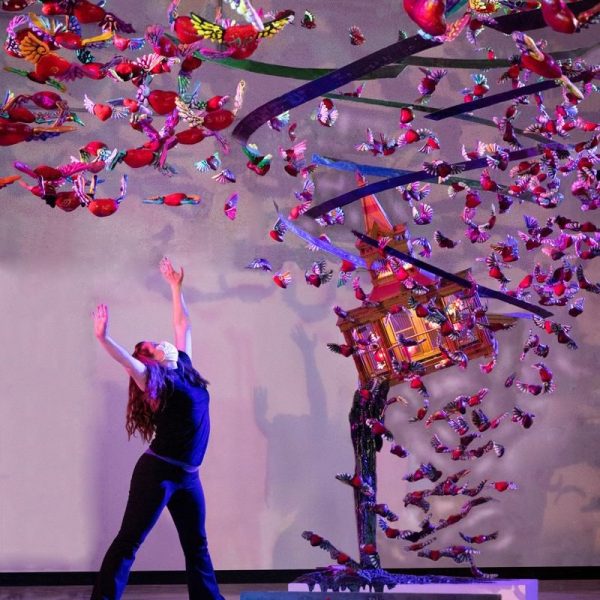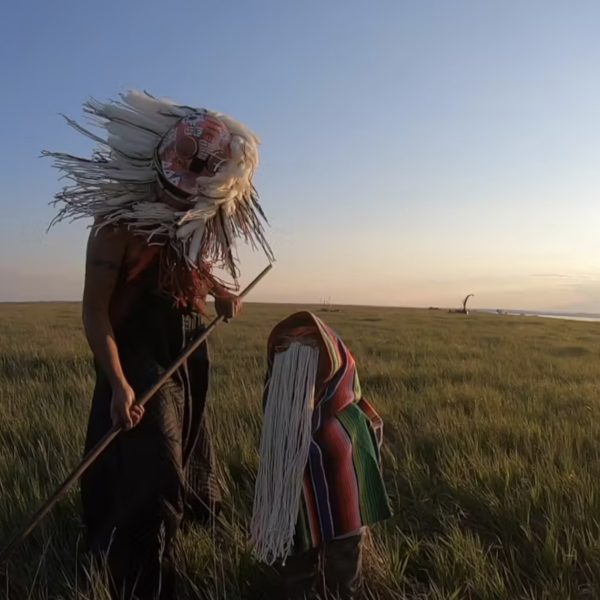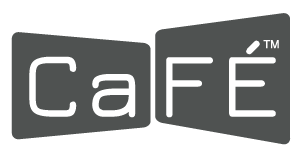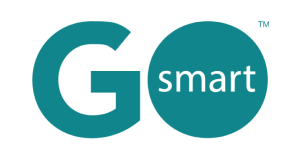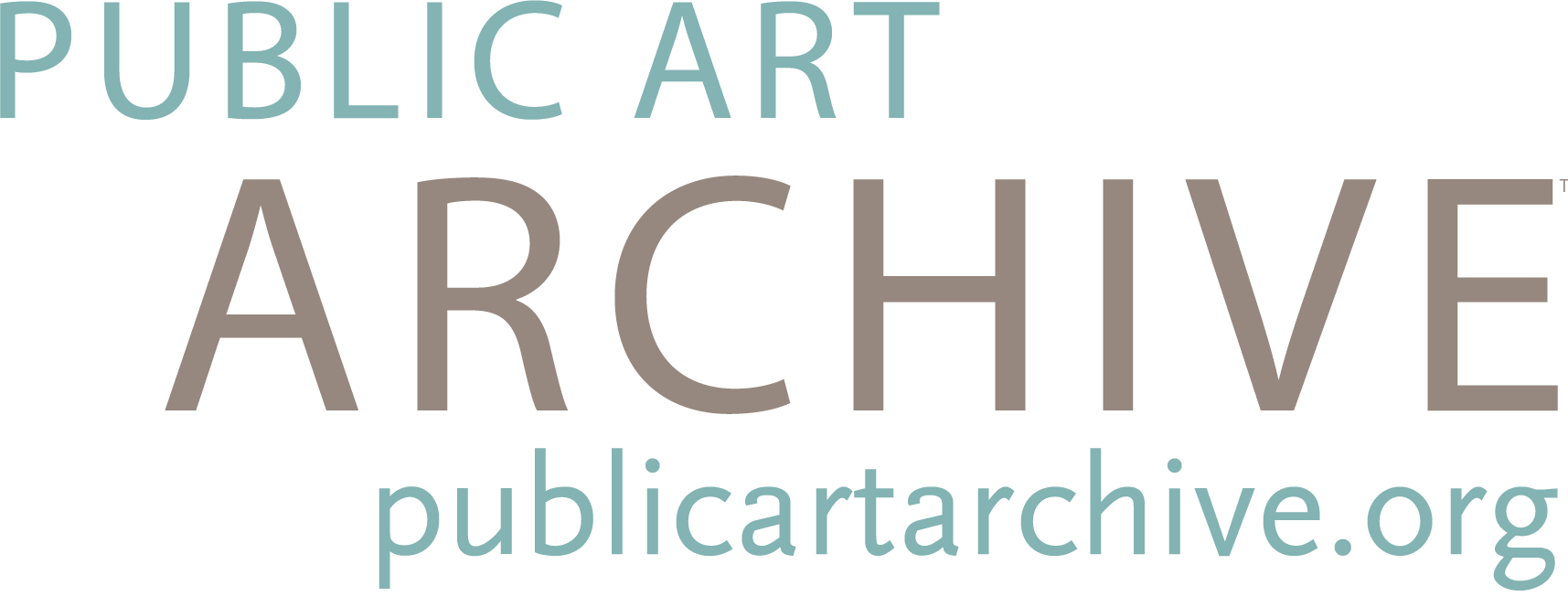Web Services powered by
WESTAF Update Notes #74 | Fepuari 2013
Mai ia Anthony Radich, Faatonu Sili
Ole 74 lea ile fa'aauauina o fa'afouga e uiga ile galuega a WESTAF
WESTAF Fa'ailoa YouJudgeIt.org™
O lo'o galulue le vaega fa'atekonolosi a le WESTAF ma le fa'afoega o poloketi e toe fausia ma fa'alautele nisi o ofo fa'atekonolosi a le WESTAF. O lo'o fa'agasolo le fa'aleleia atili o saite fa'ata'ita'i fa'aaoga tele ZAPPlication.org®, CallForEntry.org™, ma GO:GrantsOnline.org™. A'o galulue i le fa'aleleia atili o nei poloketi, o lo'o fa'atupuina fo'i e le 'aufaigaluega tekonolosi se saite fou e ta'ua o YouJudgeIt.org™. YouJudgeIt ua mamanuina faapitoa mo le faalapotopotoga faatufugaga aupito itiiti, le vaega sili ona taugofie a le ekalesia, ma le tele o le tele o punaoa a nuu. O le saite na fausia ina ia sili atu ona faigofie nai lo nofoaga sili atu ona maualuga a le WESTAF ma e taugofie le tau e faʻafeiloaʻi ai se vaega fou o tagata faʻaoga i luga o le initaneti-faʻamasinoga tekonolosi ua atiaʻe ma faʻatautaia e WESTAF mo le manuia o faatufugaga. O loʻo faʻataʻitaʻiina nei le nofoaga ma e faʻamoemoe e avanoa ia Aperila.
Fono a Komiti Faufautua Sinia a le Public Art Archive™ i Denver
O sui o le Komiti Faufautua Sinia a le WESTAF mo le poloketi a le Public Art Archive na feiloai ia Ianuari 10-11, 2013, i Denver. O mea o le lisi e aofia ai: a) se fa'aaliga ma talanoaga o agava'a ma tapula'a a Wikipedia ma isi nofoaga fa'atosina e fa'aoga ai ata fa'alaua'itele; b) se fa'aaliga o fa'amatalaga lata mai i le fa'avasegaina ma le fa'avasegaina o faiga mo fa'ata'ita'iga lautele ma le lumana'i atina'e o le Archive e fa'atino ai mana'oga fa'apitoa o le fanua i lenei vaega; i) se fa'atalanoaga o tu'utu'uga e fa'aoga e iloilo ai faiga fa'apa'aga fa'apitoa e fa'atūina e le aufaipisinisi fa'asalalau lautele; o) se talanoaga e uiga i auala e galulue ai ma faalapotopotoga a le malo e aoina faamatalaga e uiga i faatufugaga lautele; ma e) se talanoaga i auala e vala'aulia ai tagata lautele e fesoasoani i le fa'amauina o faiga fa'ata'ita'i fa'alaua'itele i se auala fa'apitoa ma atoatoa.
WESTAF Arts Leadership and Advocacy Seminar
WESTAF tausi mavaega ma se vaega toalaiti o taitai faatufugaga a le setete o le a talo Fepuari 27-Mati 1, 2013, i Uosigitone, DC. O le autu o le fonotaga o le auai lea i faʻamatalaga e uiga i le tulaga ma le lumanaʻi mo le lagolago a le feterale, e feiloai ai ma sui o le Konekeresi ma a latou aufaigaluega, ma ia auai i le WESTAF trustees i se talanoaga i auala e faʻateleina ai le lagolago a le setete-malo mo galuega a ofisa faatufugaga a le setete. O lenei fonotaga e tulitatao i se fonotaga a le WESTAF ia Tesema 2011 i Uosigitone lea na aumai ai e le WESTAF le 55 faufautua faatufugaga mai isi itu i Sisifo mo se faamoemoega faapena. O le fonotaga o le 2013 o le a faʻapupula teisi ma aofia ai se faʻafefiloi eseese o tagata auai. O le fa'aputuga na faia ina ia 'alofia ai le toe fa'aluaina o taumafaiga a le NASAA, lea na fa'atautaia ai se fonotaga tele mo ta'ita'i o le ofisa o faatufugaga a le setete ma fa'atonu fa'atonu i Uosigitone, DC ia Oketopa talu ai.
Portland's New Arts Education Access Fund
O le fa'apipi'i i lenei lomiga o Update Notes o lo'o iai se fa'amatalaga o se fa'aputugatupe fou ua fa'atagaina e le au palota e lagolago ai a'oa'oga fa'ata'ita'i i totonu o a'oga. O le WESTAF o loʻo tuʻuina atu se aotelega o le taumafaiga aua o loʻo faʻatusalia ai se alualu i luma tele mo faʻasalalauga aʻoaʻoga faatufugaga, ma matou te manaʻo e faʻasalalau le upu, e oʻo lava i nei aso o faʻamoemoega utiuti e uiga i mea e mafai ma e tatau ona faia e le vaega lautele mo faatufugaga, o loʻo faʻaauau pea le lautele. ia i ai se fiafia i le lagolagoina o faatufugaga!
O Feso'ota'iga Faufautua Faufautua 'Ausia Manumalo Fa'atasi ma Fuafuaga o Lafoga o Tupe Maua
O le Arts Education and Access Fund e avea muamua ma fa'aputugatupe fa'apitoa a le atunu'u mo galuega fa'atino
I le aso 6 o Novema, 2012, na pasia ai e le au palota i Portland, Oregon, le lafoga o tupe maua a le tagata fai lafoga e $35 e toe fa'afo'i ai faiaoga faatufugaga i aoga tulagalua uma i le lotoifale ma faatupe ai faatufugaga i le taulaga atoa. O le fua faatatau o le a maua ai le aofaʻi o le $12.2 miliona i tupe maua faʻaletausaga faʻatasi ma le tusa ma le 69% faʻatupeina faiaoga faatufugaga ma aʻoaʻoga faatufugaga faʻamaopoopo ma le 31% totoe o loʻo faʻatupeina faʻalapotopotoga faatufugaga e le o ni polofiti ma tupe faʻameaalofa e faʻateleina ai avanoa faatufugaga mo tagata o Portland. O le Arts Education and Access Fund ua tele tausaga o fai ma o le ulua'i fa'aputugatupe a le atunu'u e fa'atatau i tupe teufaafaigaluega i K-12 a'oa'oga fa'ata'ita'i ma fa'alapotopotoga tufuga fa'aalalafaga e ala i lafoga o tupe maua a tagata palota. O le auala lea na latou faia ai.
Mo le tele o tausaga, na galulue ai taʻitaʻi o faatufugaga ma sui filifilia e faʻaleleia le gafatia o Portland ma le malamalama o faatufugaga, aganuʻu, ma le fatufatuaʻi e faʻaleleia ai pitonuʻu, faʻaleleia le faiga o aʻoaʻoga, faʻaleleia le atinaʻeina o le tamaoaiga, ma faʻaleleia le ola. I le 2008, na valaaulia ai e le pulenuu o Portland Sam Adams sui filifilia mai itumalo taʻitasi e tolu o loʻo fausia ai le Portland Metropolitan Region e faʻatasi ma ia i le taloina o le silia ma le 1,500 tagata o le nuʻu mo se talanoaga faʻaitulagi i le lumanaʻi o faatufugaga. Fa'atasi, na latou fausia se Fuafuaga Fa'atino Fa'atino mo Portland e ta'ua o le Act for Art, ma o le totonugalemu o lena fuafuaga o le fa'atuina lea o se fa'atupega fa'apitoa mo a'oa'oga faatufugaga ma faatufugaga. O le Creative Advocacy Network (CAN) na fa'avaeina e avea o se fa'alapotopotoga tuto'atasi 501(c)3 e atia'e ma fautua mo lenei fa'aputugatupe fou a le atunu'u mo fa'ata'ita'iga. I le 2009, na amata ai le galuega a le CAN.
Faatasi ai ma se paketi faaletausaga i lalo ole $300,000; se aufaigaluega e 2-3; ma le fa'atupega mai le taulaga o Portland, tagata fa'atauva'a ma fa'alapotopotoga a le aufailotu, o le misiona a le CAN o le fa'atuina lea o se fa'aputuga tupe fa'apitoa mo le fa'aafugaga e fa'ateleina avanoa i faatufugaga ma aganu'u mo tagata uma e nofomau, fa'aavanoa avanoa fa'apitoa tau musika ma a'oga uma. tamaititi i totonu o potuaoga ma nuʻu, ma faʻamalosia faʻalapotopotoga faatufugaga sili ona maualuga e faʻatagaina Portland e ausia lona gafatia moni ma aganuu. Ina ia ausia lenei sini, e tatau ona fausia se fuafuaga o tupe teufaafaigaluega e fetaui ma manaʻoga o faatufugaga eseese a le itulagi, aʻoaʻoga, faʻalapotopotoga ma pisinisi, faʻamaonia se faʻatupega e maua ai tupe e lava i tausaga taʻitasi, faʻaosofia le lagolago a le au palota i le taimi sili ona leaga o la tatou tupulaga. , fa'asaga i se ala i le palota e ala i le fa'apotopotoina o saini po'o le faiga fa'apaaga sa'o a le malo fa'apitonu'u, ma fausia se fa'agaioiga o le lagolago ia lava le malosi e ave ai i le manumalo.
O le mea na amata o se taumafaiga na maua'a mau i totonu o le faalapotopotoga o faatufugaga e le o ni polofiti, na fausia i le taulai atu i le faia o ni fesoasoani, na tupu tele ina ua amata ona vaai toto'a le CAN i le pa'u tifato o faiaoga faatufugaga ma musika i aoga a le eria. O le ofo i le 11,596 tamaiti Portland o loʻo auai i aʻoga e leai ni ata, siva, tala faʻataʻitaʻiga, poʻo musika, CAN na faʻasalalau faʻatasi ma le faʻafitauli o aʻoaʻoga faatufugaga a Portland ma amata ai se talanoaga ma le au pule aoga e toʻaono a Portland na faʻatautaia e Mayor Sam Adams. Faʻatasi, na latou fausia se fuafuaga e toe faʻaleleia aʻoaʻoga faatufugaga i aoga tulagalua uma a Portland e ala i le faʻatupeina o faiaoga ma polokalame aʻoaʻoga faatufugaga e faʻavae i nuu. O lenei folafolaga na avea ma autu o Portland's groundbreaking Arts Education and Access Fund.
Na faʻateleina le fiafia o tagata lautele ma le ita i le aso 2 o Aperila, 2012, na faʻasalalau ai e le US Department of Education lana suʻesuʻega muamua o aʻoaʻoga faatufugaga i le silia ma le 10 tausaga ma faʻaalia manino ai le mamao i tua atu o Portland. Na'o le 18% o aoga tulagalua a Portland e maua ai a'oa'oga fa'ata'ita'i fa'atusatusa i le 83% i le atunu'u, ma e na'o le 58% o a'oga tulagalua a Portland e tu'uina atu a'oa'oga musika fa'atusatusa ile 94% ile atunu'u. A'o le luasefuluvalu pasene o a'oga uma a Portland e leai ni a'oa'oga fa'ata'ita'iga o so'o se ituaiga-leai se musika, tala fa'atusa, siva, po'o ata va'aia. E fa'atusatusa lea i le na'o le 3% o a'oga i le atunu'u.
E oo atu ia Iuni 27, 2012, ina ua taʻitaʻia e Mayor Sam Adams le Fono a le Aai o Portland i le faasinoina o le tupe a le malo fou a le CAN mo le faatufugaga i le palota o Novema, 2012, na manuia ai le fausiaina o se faiga faapaaga fou e tolu i le va o le taulaga, le aoga ono a Portland. itumalo, ma le faalapotopotoga o faatufugaga e le o ni polofiti-faatasi ai ma le 10,000 lagolago na sainia, 68 sui auai faalapotopotoga i luga o le vaa, 5,000 itula volenitia ua fa'amauina, ma le 76% lagolago mo le faiga palota i le vave palota.
Ina ua o'o mai le taimi o le fa'aupuga, na fa'atūina e le CAN se fa'alapotopotoga a tuafafine 501(c)4 e fa'atosina mo le faiga palota ma fa'alauiloa ai le polokalame a le Schools & Arts Together e maua ai le palota ioe mo le mea ua avea ma Fua Fa'atatau 26-146. Ina ua maeʻa se tauiviga vevela, lea e toetoe lava o tala fou taʻutaʻua uma na tetee i le mea ua taʻua o le "lafoga faatufugaga" ma isi fuafuaga tupe e lua mo le fausiaina o aoga ma le faʻatupeina o faletusi tumau na vaeluaina ai le palota, na pasia e le Arts Education and Access Fund le 62% manumalo o le. le palota.
Ole lafoga fou ole $35 a Portland mo tagata matutua o lo'o nonofo i Portland (ma tuusaunoaina so'o se tagata fai lafoga i lalo o le fa'atapula'a o le mativa feterale) e tatau ona totogi i tausaga ta'itasi e amata ia Aperila, 2013. A amata le tausaga a'oga i le tautoulu e soso'o ai, e toeitiiti atoa le 70 o faiaoga tufuga a'oga tulagalua o le a fa'atupe fa'atumauina, o tamaiti a'oga tulagalua uma i itumalo a'oga e ono o Portland o le a fa'amaonia a latou a'oa'oga fa'ata'ita'i ma sapalai fa'atutufu, ma polokalame ma malaga i fafo. o le a fa'aavanoaina mo tamaiti uma o le a'oga e ala i tupe fa'ameaalofa i a'oga a Portland ma nonprofits. E le gata i lea, o le a maua e Portland's nonprofit arts organizations le lagolago lautele latou te manaʻomia e faʻaolaina ai faatufugaga mo tagata uma o Portland, tuʻuina atu fua faʻataʻitaʻiga poto masani, oʻo atu i nuʻu e le o maua, ma atinaʻe mafaufauga faʻavae faʻataʻitaʻiga faʻavae mo tamaiti i taimi uma aʻo faʻaauau pea ona faʻatulagaina ona. pitonu'u, fa'aola lona tamaoaiga, a'oa'o lana fanau ma fa'apotopoto le itulagi. I Portland, $35 e alu mamao.
Fa'asoa i Fa'amatalaga Fa'afou
Mo Email Maketi e mafai ona e faʻatuatuaina.
